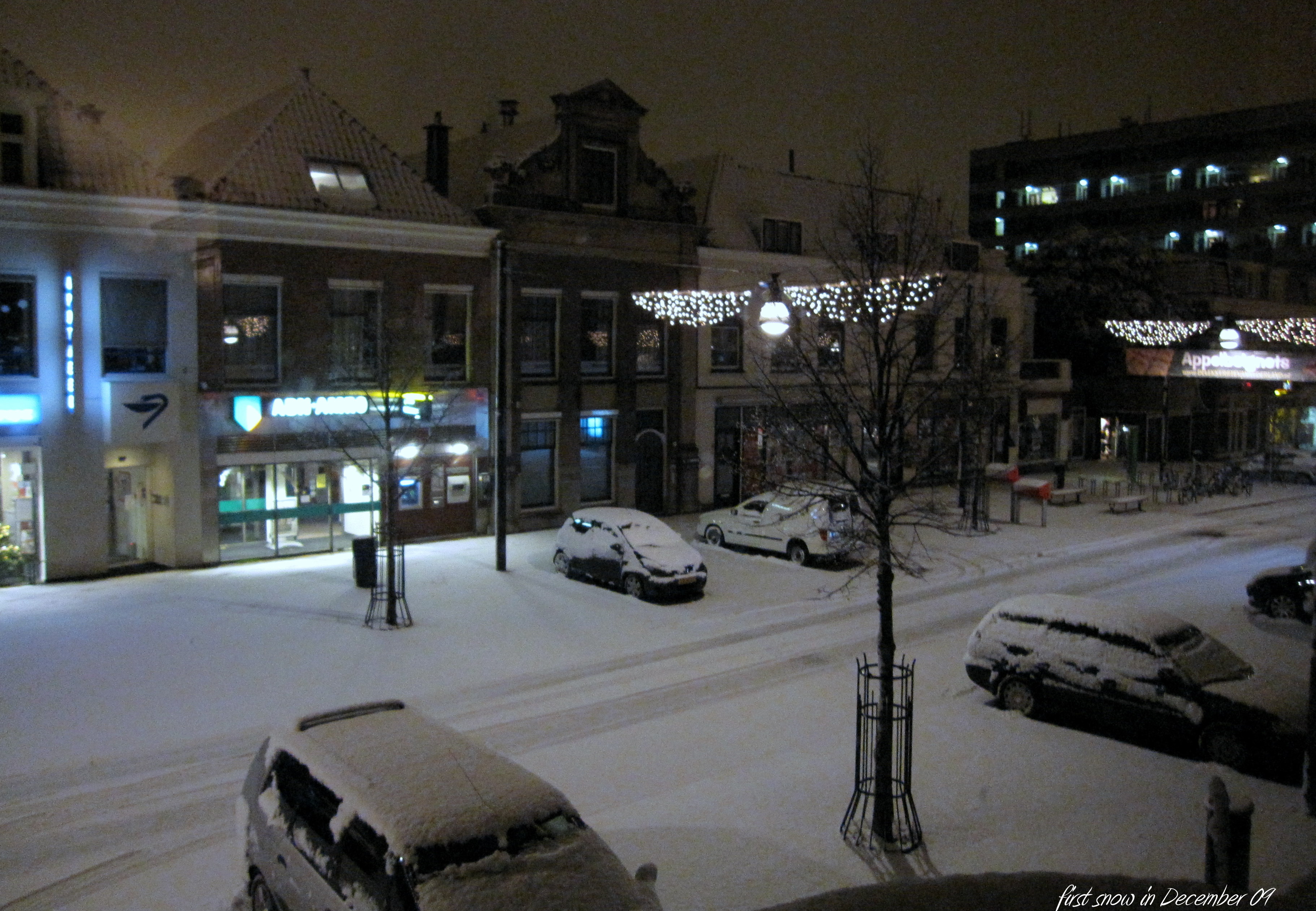Growing up in the Philippines, the Christmas holiday season is a very festive one. Christmas trees go up right after All Soul’s Day on November 2nd. Decorations are colorful and abundant and Christmas lights and lanterns dominate the streets, gardens and gates of houses. Yuletide music can be heard wafting through the air from neighbor’s homes, supermarket speakers and shopping centers – some as early as September.
There are no snows, no pine cones and no chestnuts roasting on an open fire but the feeling of Christmas is an unmistakable one and here are a few reasons why I miss being in the Philippines this time of year:
1.) Children caroling on your house’s front steps in the weeks prior to Christmas.
Nothing adds more holiday cheer than the sight and sounds of little ones enthusiastically ringing your doorbell and belting out their own off-key renditions of Silent Night and Jingle Bells with their tambourines and Santa hats. And scuttling off just as quickly to the next house once they receive some coins and goodies – even when they were still in the midst of their performance.
2.) I miss my friends.
There are high school friends and university friends, groups and organization friends and social friends – the kind of people you prefer to hang out with regardless of any affiliation. The weeks before Christmas Day are a mad round of dinners and parties for each group and catching up with them in a festive atmosphere are always heartwarming.
3.) There is no noche buena and no misa de gallo here in The Netherlands.
I miss that warm, fuzzy feeling when the whole family comes home from midnight mass on December 24 and sit down together for a meal. The table is abundantly laid out with foods like the lechon (whole roasted pig), chicken relleno (stuffed roasted chicken), camaron rebosado, pancit, lumpia and the like and traditional delicacies like biko, puto bumbong and bibingka with hot chocolate made from the real cacao plant.
Food is a central theme in any Filipino gathering and no other occasion than Christmas brings out the most meticulous planning and preparation on what to serve on this occasion.
4.) Christmas family parties in the Philippines are like family dramas on steroids.
I miss the family gathering which always starts in a happy mood and everyone is having fun, singing and dancing and lots of laughter. Then everyone slowly gets a little bit inebriated and then the drama begins. An aunt or uncle usually starts a discussion or rehash an old wound which quickly turns into an argument and everyone else join the fray and everybody starts shouting and crying. And then they all end up eventually hugging each other and being friends –- or relatives again.
The unfolding drama is entertainment fodder to us –- namely me, my sister and my cousins who are all quietly chuckling in the background. And it happens year after year and in most other families as well.
As these sweet memories run through my mind, I can’t help but smile; feel wistful and nostalgic about Christmas back home… so here’s wishing you all a very lovely and heartwarming celebration wherever you may be in the world.
Merry Christmas & Happy New Year! Cheers!
It is easy to get lost in the run-up to Christmas. The pressure to give presents increases as the holiday approaches and the list seems endless. And you haven’t even started planning the Christmas dinner yet.
One can glean a lot from the way the Dutch celebrate Christmas. Perhaps, the most valuable of all is letting go of commercial manipulations practices disguised as generosity, creating shopping madness even to the most organized among us.
Having spent the holiday season in Holland the past three years, here are four reasons why this particular time of year has been very relaxing ever since.
1) The Dutch are big on sending Christmas cards, not on gift-giving.
It’s the thought that counts, really. This takes a lot of pressure off from the last minute shopping sprees trying to figure out which present to give to whom; sometimes done out of courtesy or social obligation or in keeping up with others’ expectations.
2) Friendships are celebrated by having intimate dinners with the people who really matter.
No fancy dress up parties, no fake pleasantries, no social obligations. You show up because you really like the company and the conversation and not because it’s a social happening.
3) The obligatory company parties and exchange of gifts are non-existent.
4) Christmas Day is a family affair.
As a testament to this, there are two Christmas days. The first one, December 25, is when the whole family sits down for a lovely dinner together. December 26 is also known as second Christmas Day and gives couples a chance to visit the other side of the couple’s family, and the grandchildren to see their other set of grandparents. This also means a lot of traveling up and down, but the Dutch don’t seem to mind. Family ties run deep.
It is no surprise that Christmas in Holland is not dictated by retailer stimulations. The Dutch people are known for being stingy, and yet, The Netherlands stands at no. 6 in the world ranking of donor countries providing economic aid to developing nations.
Generosity doesn’t happen once a year.
And those of you who worry too much about that ubiquitous Christmas list are usually the ones who are thoughtful to family and friends and provide help to those in need the whole year round.
I am not against giving presents. But it is overrated in certain parts of the world and that is not the essence of Christmas. I prefer the toned-down Dutch version and that is why I love spending this time here.
Besides, there’s always the possibility of a snow white Christmas adding to the holiday cheer!
I woke up to this beautiful sight! A snow-covered earth; our first snow in December!
There’s something about the sight of snow at dawn, when the world is asleep and everything seems so pure and clean, untouched.
This makes me happy. This makes my heart sing.
Maybe its the Christmas spirit. Maybe its the celebration of all the good things this year has brought. Maybe its the coming of a new year and the promise of hope it brings; a brighter tomorrow. Another chance to right the wrongs and look forward to better times.
Of stepping away from the heartaches of the past and a renewed energy to focus on all things good and wonderful.
I am thankful for this quiet moment before mankind wakes up and leaves footprints on this pristine earth; before the sun breaks through the clouds and melts everything into mush.
Looking out from my glass window… I know that today is going to be one fine winter day. 
It’s 2:00 in the morning and I’m sitting up in bed with my 7-month old in my arms.
She’s running a fever of 39.9 degrees Celsius. She’s teething; her first incisor just broke through. She has been crying pitifully for the most part of the night. She has a cold and her nose is stuffed. Saline spray was administered through her nose earlier; the relief was temporary. When laid down she shifts her head restlessly from side to side. She can hardly breathe and she wails in a heartbreaking sound.
I pick her up and cradle her in my arms. She relaxes and slowly drifts off to dreamland. I hear her laboured breathing through her stuffed nose. I hold her for half an hour more, wanting her to get the rest she deserves after all those hours of discomfort. Soon my arms and eyes start to give. I lay her down gently in the crib. This time she stays asleep.
I hit the bed and before I know it, morning breaks through. I get myself ready to call my office that I won’t be coming in today. I always feel uneasy to say I can’t be at work. I feel even more uncomfortable at the thought of going to work knowing that my baby is not well. I get a sinking feeling at the pit of my stomach.
When it comes to childcare and household chores, the default person in-charge is almost always the woman. It would have been so much easier for us then to opt out from the workforce and stay at home once we start having babies. It is easy to lose ourselves in the whole family and kids equation. But working outside the home, aside from being professionally rewarding, provides a welcome break from the diaper duties, the baby talk; and everything that has to do with running a household 24/7.
It is a woman’s way of holding on to a piece of her own self. It provides a venue for adult interaction about things that matter in the workplace. It gives her validation that she’s contributing something significant to society; not as a mother, not as a wife, but as herself.
Combining professional work with raising kids are two equally demanding tasks. By choosing to work outside of the home, we are confronted with the dilemma: are we putting too much on our plate? Would it make our lives simpler if we only had two choices: to be a stay-at-home mom or a working mom? Has the feminist movement done us any good by giving us more choices? Or has it raised our stress levels just a notch higher?
There is no perfect solution. And I am thankful for the many choices I have in front of me. I would not want my love for my children nor my parenting skills to be questioned or challenged just because I want to develop myself professionally. We deal with the issues as they come and we hope that the workplace will be more enlightened about the struggles confronting women everyday.
At the intersection of every woman’s career and home life, we will continually face situations which will force us to make a decision. Either way, that decision will make us uneasy or guilty. Either way, something or someone will have to take a backseat for a while.
And that is not going to be my daughter.
It is saddening to see Filipinas in The Netherlands, Hong Kong and all over the world employed as domestic helpers. They are working their tails off so that they can send money back home for their children’s education, for their parent’s and relatives’ sustenance or to build decent houses for their families. Houses which they can never otherwise dream of nor afford owning had they stayed in their own country.
Some risk staying illegally once their employment contracts expire because the threat of deportation if they are caught is a better alternative than returning back to the poverty-like conditions they have been trying to extricate themselves and their families from. These undocumented Filipinas survive by doing odd jobs; sometimes cleaning ten to twelve houses a week while others are employed full-time in certain households.
In an article written by Jeff Israely of Time magazine, he mentions that a cleaning woman is often generically referred to as a “Filippina” in Italy.
Cleaning other people’s houses and toilets is not the greatest achievement any woman would want for herself in her lifetime. But she goes ahead and does it in the hope of providing a better future for her children and family. She sacrifices her own needs and wants and gives up what she has dreamed for herself.
Why do Filipinas choose to work abroad as maids? The failure of the Philippine government to provide educational opportunities and jobs for its citizens has brought about an increased migration of Filipinas working as domestic helpers in foreign countries. The country’s leaders actually encourage this exodus because these women have become a vital means of sustaining the country’s economy through their remittances.
It is appalling to note that none other than Philippine president Gloria Arroyo herself has touted the Filipina domestic helpers abroad as supermaids! As head of state and as a woman, she should be championing women’s rights and initiating employment opportunities for them so that they never have to leave their homes to work overseas. To proclaim them as supermaids shows a complete failure on her part to improve the conditions of her fellow Filipinas and an utter lack of compassion for the families missing their mothers, daughters, wives and sisters.
No one dreams of becoming a cleaning woman when they grow up. Although there is nothing wrong with it, and it may be a decent job, it is not something anybody will aspire to given the choice. Every person has their life’s purpose cut out for them. Whatever that may be, it should be about reaching one’s highest potential.
Given the right support, education and development program, the very qualities which make the Filipina a preferred maid overseas can be put to better use serving her own country in a more dignified form of employment.





